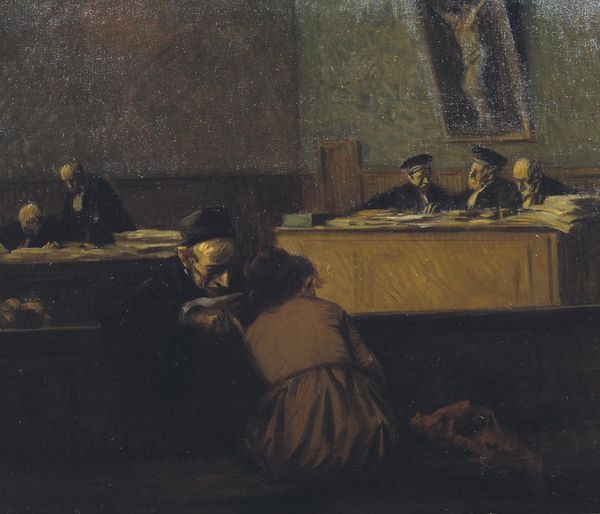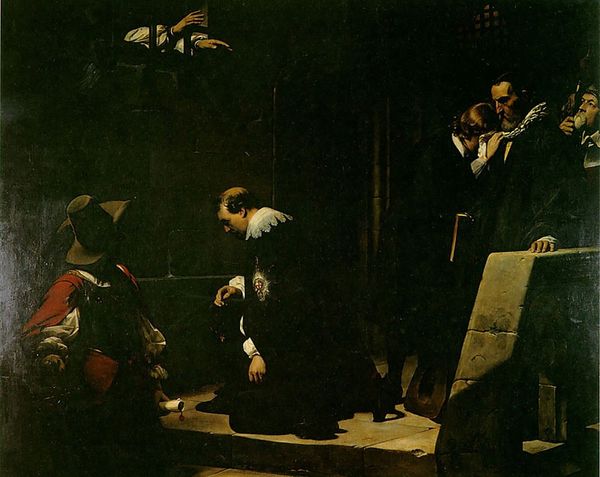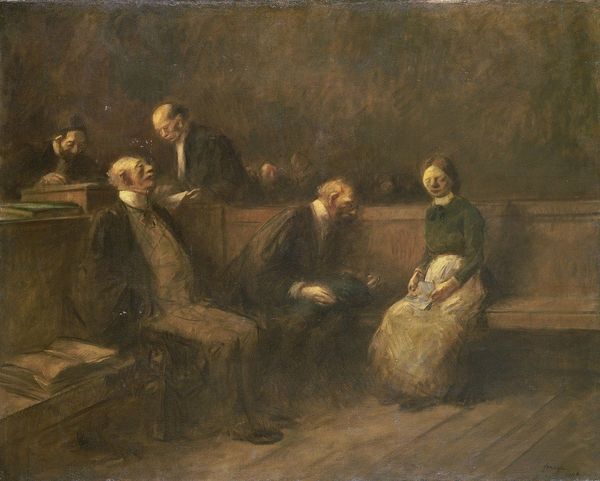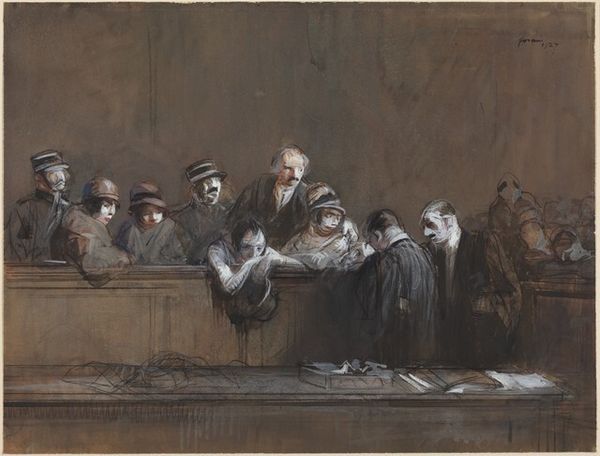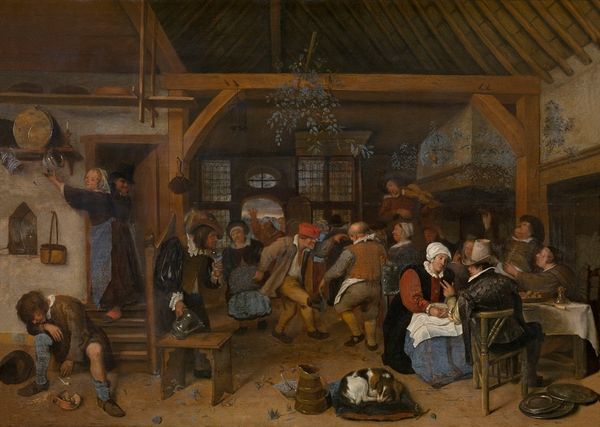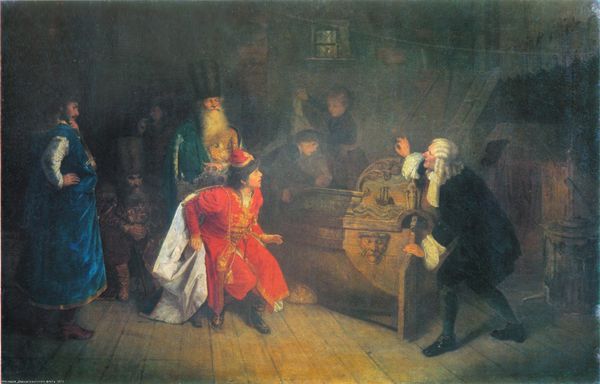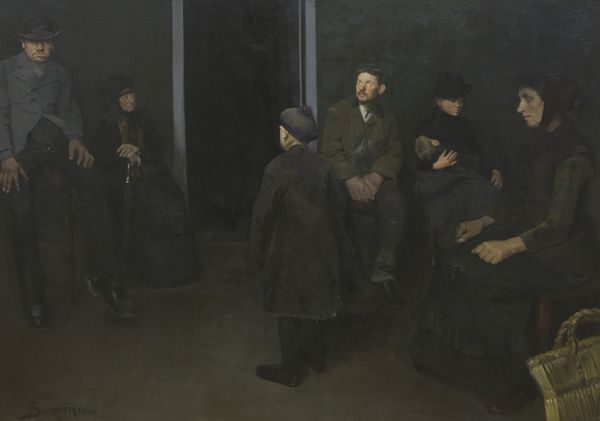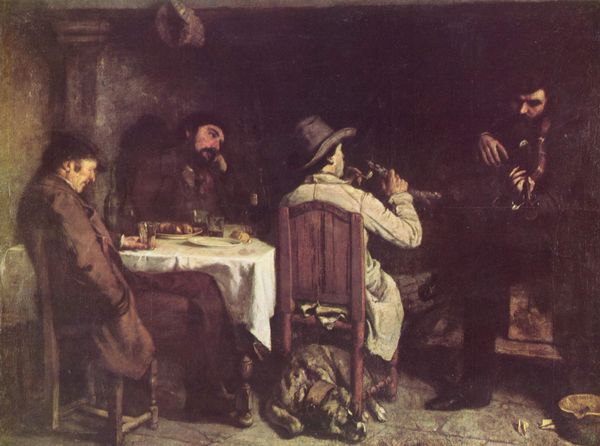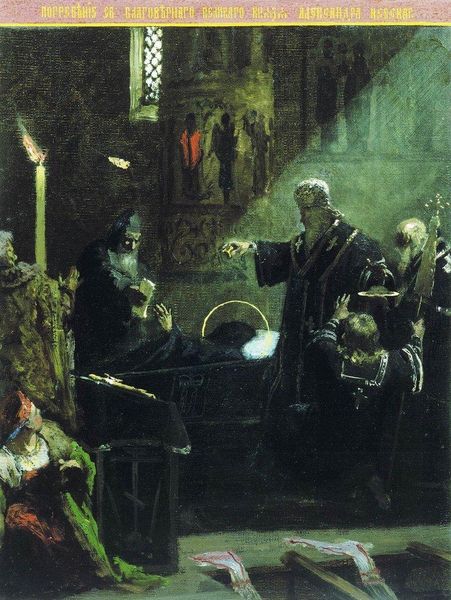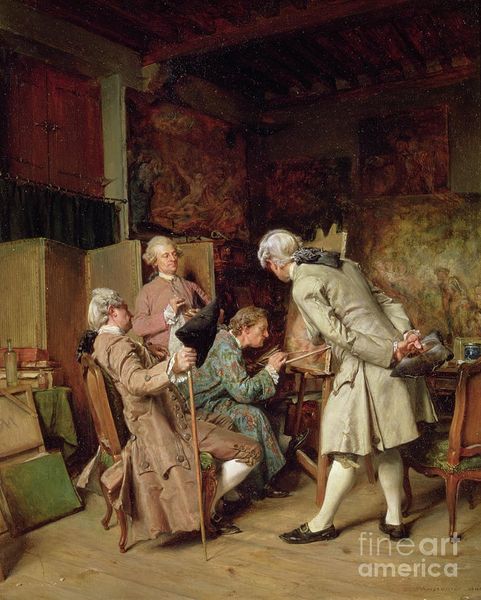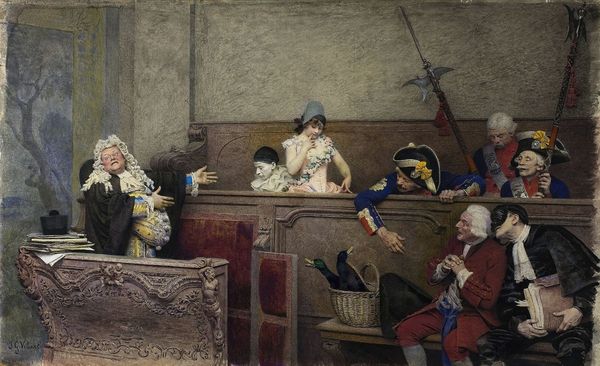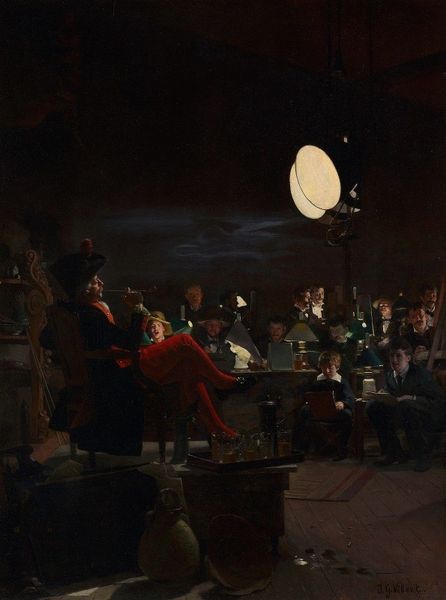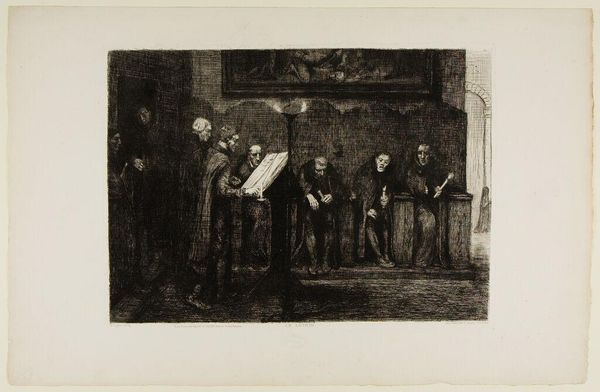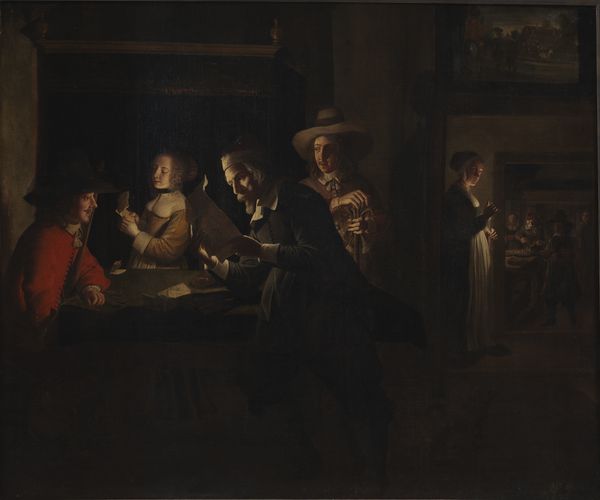
Dimensions: support: 889 x 1270 mm
Copyright: CC-BY-NC-ND 4.0 DEED, Photo: Tate
Curator: What strikes me immediately is the tenebrism, the dramatic contrast of light and dark. It throws an almost theatrical veil over everything. Editor: Indeed. This is Claude Calthrop's "Meeting of Scottish Jacobites," housed here at the Tate. Note the deliberate use of shadow. It conceals as much as it reveals. Curator: Absolutely. The figures are clustered around the table, a huddle of hushed conspiracy. The skull above them is a stark memento mori. Editor: That's a loaded symbol. Death, sacrifice, lost causes. But also, the Jacobite cause viewed through a romantic, maybe sentimental, 19th-century lens. Curator: It’s a powerful image of defiance and remembrance. The dog, too, loyalty perhaps. A symbol of fidelity amid political turbulence. Editor: I appreciate how the artist plays with our perception of light to create this atmosphere. Each figure, emerging from the darkness, hints at a deeper story. Curator: Agreed. There’s so much history and emotion imbued in these visual cues. Editor: Yes, it’s a painting that seems to echo long after you've looked away.
Comments
tate 9 months ago
⋮
http://www.tate.org.uk/art/artworks/calthrop-meeting-of-scottish-jacobites-n01921
Join the conversation
Join millions of artists and users on Artera today and experience the ultimate creative platform.
tate 9 months ago
⋮
The Jacobites aimed to reinstate James II and his descendants on the throne; the cause lasted from 1688 to the defeat of Charles Edward Stuart (Bonnie Prince Charlie) at the battle of Culloden in 1746. Charles had crossed the border into England in 1745 with a large army gathered from Scotland. This painting shows a group of Scottish Jacobites meeting in secret to discuss the uprising. The danger of discovery is underlined by the dog on the left, alerted by a noise at the door. Such images echo the romantic image of Scotland popularised by the novels of Walter Scott. Gallery label, September 2004
